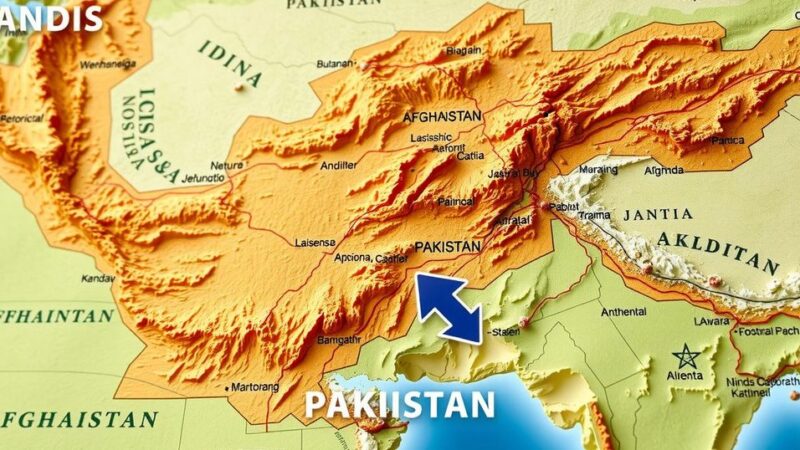Negotiators from the U.S., Turkiye, and Kurdish forces are discussing the future of Kurdish fighters in Syria, amidst growing tensions and complex challenges. While SDF seeks decentralized governance, the new Syrian defense ministry advocates for a unified command. Intense negotiations aim for a resolution involving the integration of Kurdish forces and management of resources, complicated by Turkiye’s military concerns and the U.S. foreign policy direction under a new administration.
Negotiators from the United States, Turkiye, Syria, and the Kurdish-led Syrian Democratic Forces (SDF) are engaged in discussions concerning the fate of Kurdish forces in Syria. While publicly these parties appear firm, inside sources indicate a willingness to compromise, setting the stage for a potential agreement that could involve the relocation of some Kurdish fighters and their integration into a new defense structure in Syria. However, significant challenges remain, including the integration of SDF fighters into Syria’s security framework while maintaining control over valuable territories rich in oil and wheat resources.
SDF commander Mazloum Abdi has expressed that the alliance seeks decentralized administration and has no intention of disbanding. He is open to working with the new Syrian defense ministry as a military bloc, while the new minister has refuted this stance, advocating for a unified command under state authority, which does not favor maintaining the SDF’s current structure. The potential for Kurdish autonomy in Syria largely depends on the support of the incoming U.S. president and the administration’s stance on troop presence in Syria, amidst threats of military action from Turkiye against Kurdish forces perceived as a security threat.
Intense negotiations are ongoing, significantly impacted by the recent offensive led by Hayat Tahrir Al-Sham (HTS) that resulted in regime change in Syria. With shared goals of reducing foreign influence in the region, both the United States and Turkiye are pushing for a resolution, yet complexities inherent in the discussions underscore that a quick solution is unlikely. Concurrently, discussions focus on the integration of various armed factions and the potential for Turkish military intervention if disarmament does not progress.
Kurds, historically marginalized yet empowered during the Syrian conflict, now face the prospect of diminished power following the regime change. With Turkiye’s support for rebel factions in Syria, its influence over the situation has grown significantly, impacting Kurdish interests adversely, as Turkiye aligns with the new Syrian government that is perceived to favor the disbandment of the SDF. Concerns related to the ongoing violence and instability in northern Syria further complicate the situation, as clashes between Kurdish forces and Turkiye’s allies have continued.
The United States continues to advocate for the SDF as a critical ally against Daesh, complicating its relationship with Turkiye. Turkiye, in turn, demands the transfer of management of Daesh detainee camps and the departure of foreign fighters from SDF territory, enforcing its expectation of a proactive approach from the Syrian government. Additionally, potential agreements may include economic trade-offs, such as a fair revenue distribution system if the SDF relinquishes control over oil resources.
The impending U.S. administration’s actions regarding the SDF will significantly impact any transitional agreements. Moreover, the uncertainty surrounding President Trump’s return raises concerns among Kurdish factions, given his unpredictable diplomatic style. Observers suggest that while U.S. support is likely to persist, the evolving political landscape necessitates adaptability from both Kurdish leaders and their Syrian counterparts.
The discussions surrounding the future of Kurdish forces in Syria involve complex negotiations between various political and military actors, including the United States, Turkiye, and the Kurdish-led Syrian Democratic Forces. The Kurdish fighters have played a critical role in the U.S. efforts against Daesh, gaining substantial territory in northeastern Syria. However, with recent changes in the Syrian government and rising tensions with Turkiye, Kurdish factions face the challenge of maintaining their autonomy and control over resources. The potential realignment of U.S. foreign policy under a new administration could have significant implications for the future of the SDF and the region’s stability.
The situation in Syria remains fraught with challenges as negotiators attempt to navigate the complexities of Kurdish autonomy and integration into the new security framework following regime changes. A successful accord will necessitate compromises among all parties concerned, particularly regarding the management of territories and armed groups. The strategic interests of the U.S. in supporting Kurdish fighters against Daesh must also be balanced with Turkiye’s national security concerns. As negotiations unfold, the stakes for regional stability and security remain high.
Original Source: www.arabnews.com







